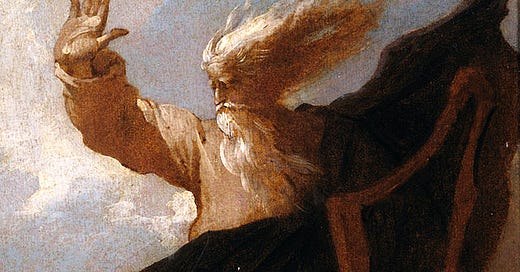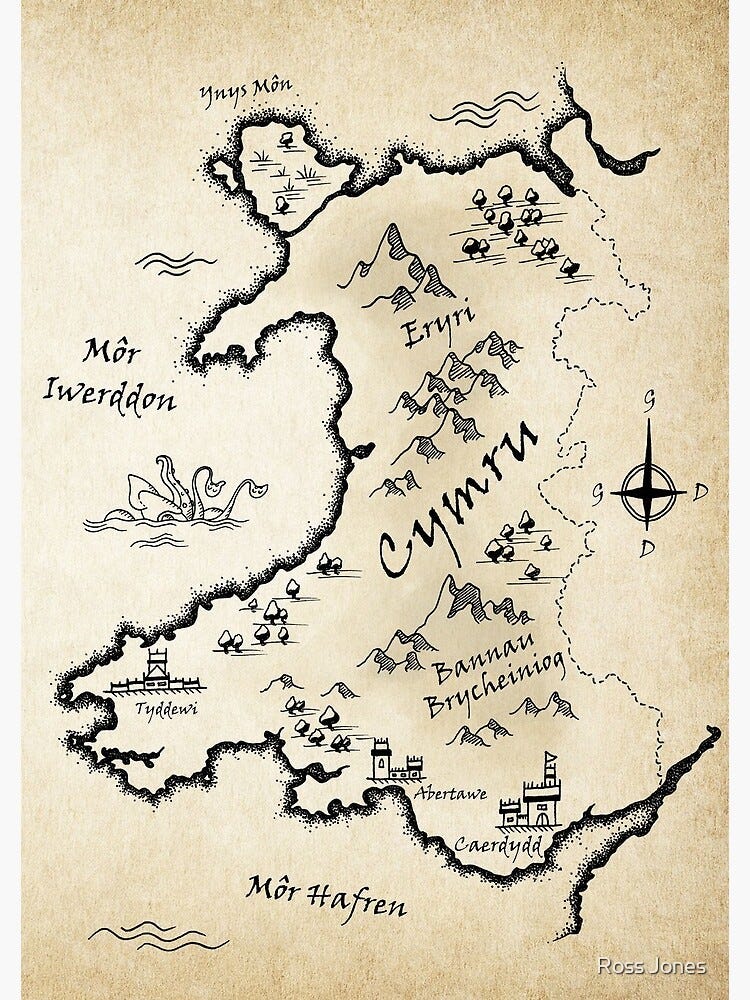The Bards of Wales, a poem written by János Arany in 1857, describes how Edward I burnt five hundred Welsh bards at the stake after the conquest of Wales in 1282.
Arany's poem was inspired by the Hungarian politics of his day, and had no basis in fact. The true history of the Welsh bards post-1282 is far more nuanced.
The bards were professionals who wrote for money. They were hired to sing the praises of their patrons, whoever that might be. In 1294, twelve years after the conquest, the bardic tradition was still flourishing at the princely court of Mathrafal in Powys.
The lord of Powys was Owain ap Gruffudd ap Gwenwynwyn. In that year his court bard, Llywelyn Fardd III, composed the following praise poem for his lord (translation by Dr Adrian Price):
“Praise-spreading Owain, praise-spreading
Defender of fiercely-attacked Dyliffain.
No wound will come to him, no terror will befall him,
A swift, bold upholder, whose gift is gold,
The wealth of Camlan, leader of the lineage of princes,
Like Clydno Eidyn, the chief accomplice of luxury.
A steadfast sword which shatters blades, the dread of the valley floor of London,
A hero lord greatly praised in poetry, the guarantor of Britain.
The leader of the fervent army of the brave men of the east,
Leading a gold-saddled, ready steed.
An emblem which will not be called a fawn’s possession,
Privileged stag of perfect, refined praise.
The strength of a brave, mighty and generous man, defending armies,
You honour him who does not submit at matins.
While seeking provision, gold-bladed monarchs,
Gilt-sworded companion, garnering gore.
The undoubted son of Gruffudd, a fine lord,
I remember that a fine eulogy is not unrecompensed.
The grandson of unyielding Gwenwynwyn who made stiff corpses,
Wolves are his cooks around his lance.
He is Nudd of the unstinted gift, annihilating warriors,
Powerful, skilful king.
His the best laws, exalted nation,
Since when news came of Cichwain’s tribe,
Respected warrior, owner of a graceful stallion,
Proud splendour, swift hawk of corpses.
Authority of the council assembly in the fine man with outstanding gifts,
The privilege of generous wealth, wandering minstrelsy.
Red-speared lord of an exalted encounter,
Stiff, haemorrhaging Bernicians, the gracious portion of ravens,
His brave aftermath is estimated, war-reading sword,
No wonder there is wealth as far as Rome.
The fervent host of a soaring leader,
A steadfast lord, certain to defend Mechain.
A dire warning for people who may become an abundant feast for a flock of seagulls,
As one would go to battle at Rhyd Angain.
May the Lord God rise again;
The great lover of earthen-hued Darowen.
Easy for us to present, the host of Main, - his quality,
The praise-spreading defender of the gate.”
The poet hailed Owain as the 'dread of the valley floor of London' and a prince who slaughtered the 'Bernicians' (Bernicians = English).
In fact Owain never fought the English in his life: he was King Edward's loyal servant, the only Welshman to serve as a royal household knight and shield-bearer. Owain's most notable military exploit was to hold shared command of the royal army that crushed the revolt of Rhys ap Maredudd, a rival Welsh prince, in 1287.
This, however, misses the point. Llywelyn Fardd's job was to project a heroic image of his patron, harking back to his warlike ancestors. The prosaic reality of Owain's career was irrelevant.





